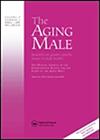The relationship between depressive mood and subjective health in centenarians and near-centenarians: a cross-sectional study from Korean centenarian cohort.
IF 2.7
4区 医学
Q3 ENDOCRINOLOGY & METABOLISM
引用次数: 0
Abstract
Abstract Background With the rapid increase in population longevity, more clinical attention is being paid to the overall health of long-lived people, especially centenarians. Subjective health, which is the perception of one’s health status, predicts both mortality and declining physical function in older adults. The purpose of this study was to investigate the factors related to subjective health among centenarians and near-centenarians (ages ≥95) living in a rural area of South Korea. Methods A total of 101 participants were enrolled from four different regions (Gurye, Gokseong, Sunchang, and Damyang), known as the Longevity Belt in Korea. Variables assessing physical and mental health, including the results of blood tests, were examined. Factors associated with good subjective health were identified with logistic regression analysis. Results Fifty-six participants (59.6%) were subjectively healthy among the centenarians and near-centenarians. Logistic regression analysis revealed that depressive mood was the only factor associated with subjective health and was negatively correlated. The regression model explained 39% of the variance in subjective health. Conclusions These findings emphasize the importance of mental health at very advanced ages. Because depressive mood negatively correlates with subjective health, more attention is needed to prevent and manage mood symptoms of people of advanced ages, including centenarians.百岁老人和近百岁老人抑郁情绪与主观健康之间的关系:一项来自韩国百岁老人队列的横断面研究。
背景:随着人口寿命的快速增长,临床越来越关注长寿人群,尤其是百岁老人的整体健康。主观健康是对一个人健康状况的感知,可以预测老年人的死亡率和身体功能下降。本研究旨在调查居住在韩国农村地区的百岁老人和近百岁老人(年龄≥95岁)的主观健康相关因素。对包括血液测试结果在内的评估身心健康的变量进行了检查。通过逻辑回归分析确定与良好主观健康相关的因素。结果:56名参与者(59.6%)在百岁老人和近百岁老人中主观健康。Logistic回归分析显示,抑郁情绪是唯一与主观健康相关的因素,并且呈负相关。回归模型解释了39%的主观健康差异。结论:这些发现强调了老年人心理健康的重要性。由于抑郁情绪与主观健康呈负相关,因此需要更多的注意力来预防和管理包括百岁老人在内的老年人的情绪症状。
本文章由计算机程序翻译,如有差异,请以英文原文为准。
求助全文
约1分钟内获得全文
求助全文
来源期刊

Aging Male
医学-泌尿学与肾脏学
CiteScore
6.40
自引率
3.80%
发文量
33
审稿时长
>12 weeks
期刊介绍:
The Aging Male , the official journal of the International Society for the Study of the Aging Male, is a multidisciplinary publication covering all aspects of male health throughout the aging process. The Journal is a well-recognized and respected resource for anyone interested in keeping up to date with developments in this field. It is published quarterly in one volume per year.
The Journal publishes original peer-reviewed research papers as well as review papers and other appropriate educational material that provide researchers with an integrated perspective on this new, emerging specialty. Areas of interest include, but are not limited to:
Diagnosis and treatment of late-onset hypogonadism
Metabolic syndrome and related conditions
Treatment of erectile dysfunction and related disorders
Prostate cancer and benign prostate hyperplasia.
 求助内容:
求助内容: 应助结果提醒方式:
应助结果提醒方式:


